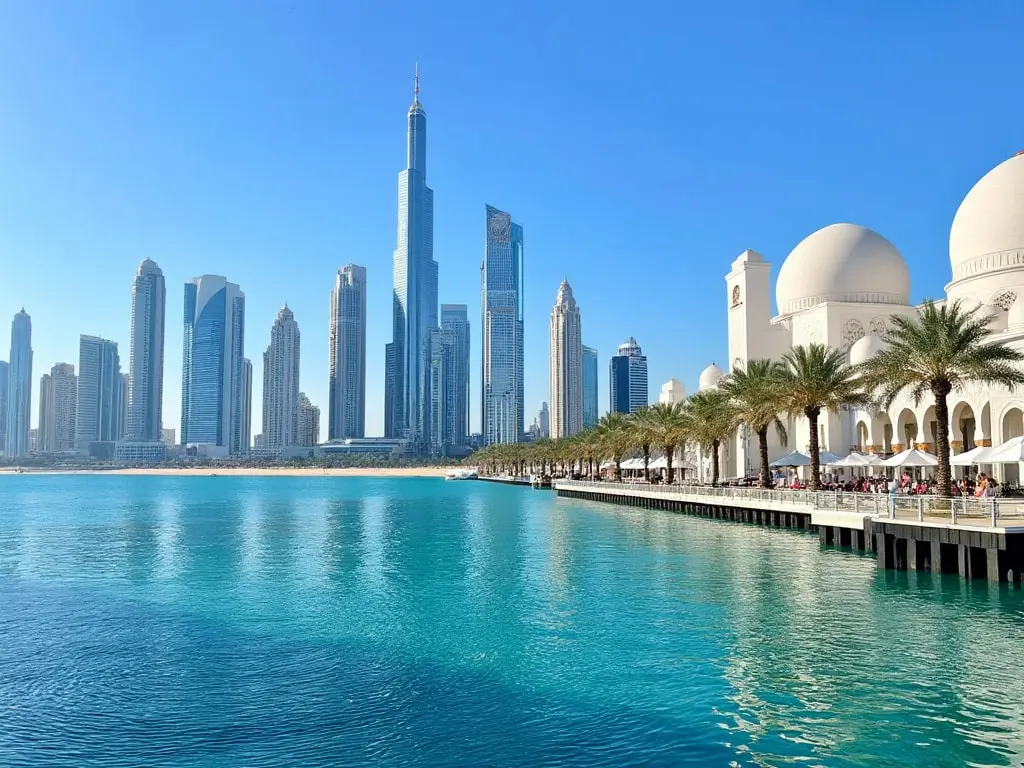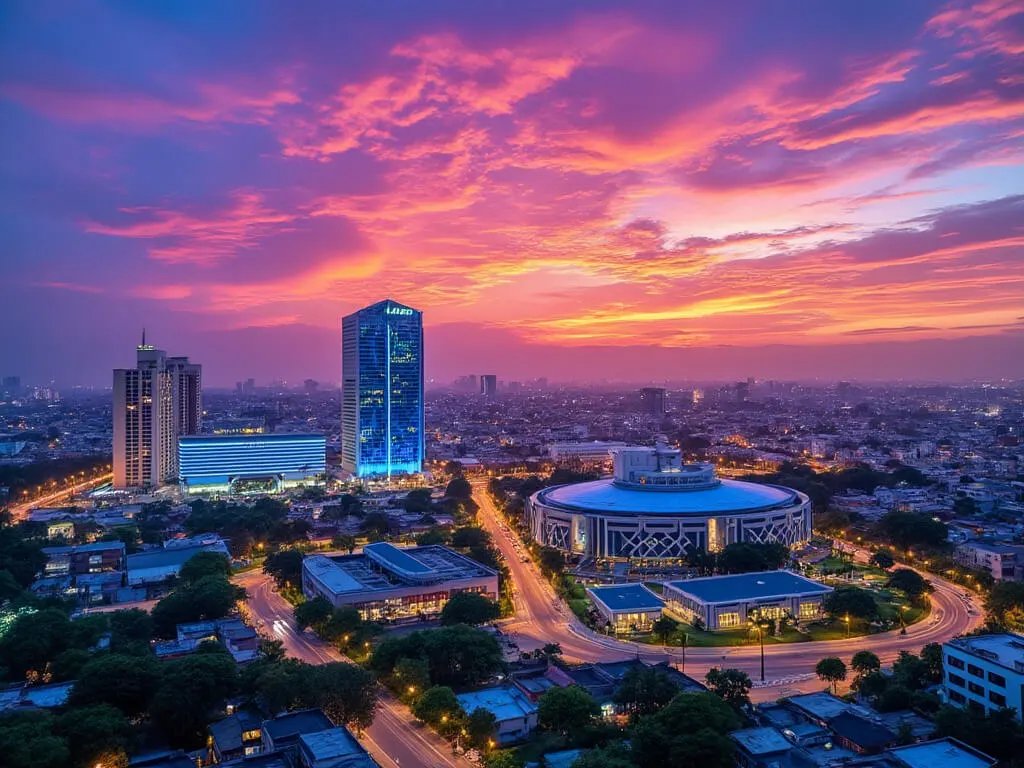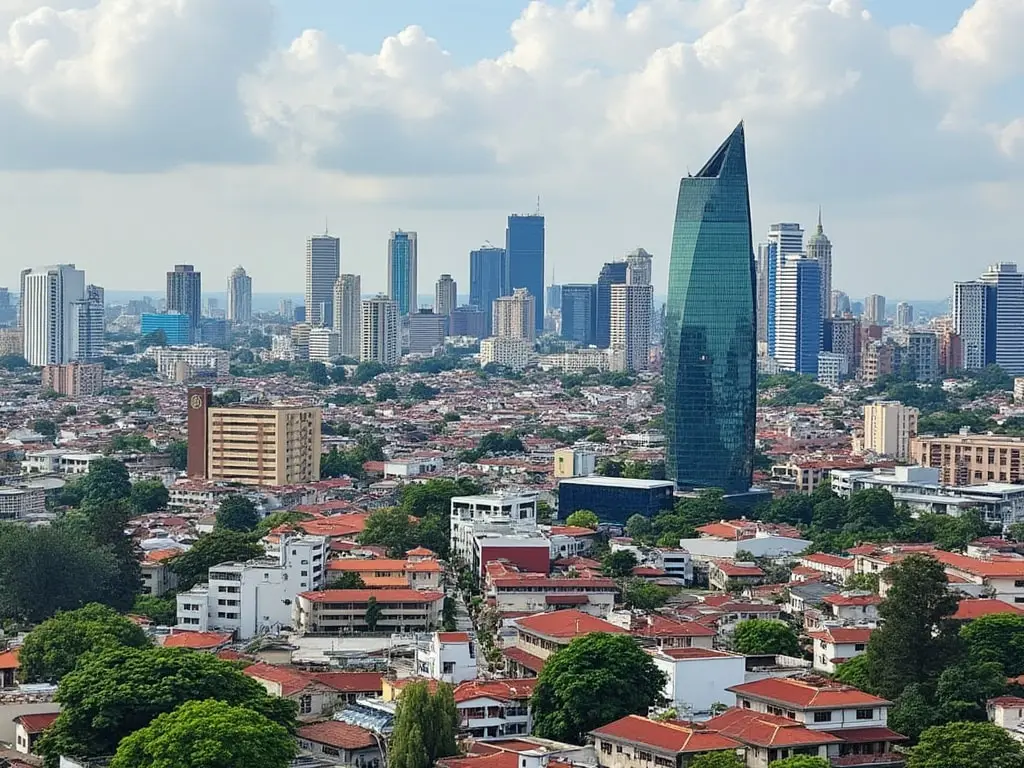
Abu Dhabi is the capital and second-most populous city of the United Arab Emirates (UAE). Located on an island in the Persian Gulf, Abu Dhabi is a modern, cosmopolitan city with a rich cultural heritage and a strong economy. The city is home to many iconic landmarks, including the Sheikh Zayed Mosque, the Louvre Abu Dhabi, and the Emirates Palace hotel.
Abu Dhabi information
| Country | 🇦🇪 Emiratos Árabes Unidos |
| City Population | approximately 1.4 million (as of 2021) |
| City Coordinates | 24.4667° N, 54.3667° E |
| City Area | 972.45 km² (375.45 sq mi) |
| Climate | Hot desert climate (Köppen climate classification: BWh) |
| Language | Arabic (official), English, Urdu, Malayalam, and other languages |
| Currency | United Arab Emirates dirham (AED) |
| Time zone | UTC+4 (UAE Standard Time) |
| Proximity to other major cities | Dubai (120 km / 75 miles), Al Ain (160 km / 99 miles), Muscat (430 km / 267 miles) |
Interesting facts about Abu Dhabi
- Abu Dhabi is home to the world's fastest roller coaster, the Formula Rossa, which is located at the Ferrari World theme park.
- The city has a unique system of falconry, with many residents keeping falcons as pets.
- Abu Dhabi is home to the world's largest hand-loomed carpet, which is on display at the Sheikh Zayed Mosque.
- The city has a vibrant expat community, with many residents from all over the world.
Tourist attractions in Abu Dhabi
- Sheikh Zayed Mosque: a stunning mosque that is one of the largest in the world.
- Louvre Abu Dhabi: a museum of art and culture that showcases a diverse collection of artworks from around the world.
- Emirates Palace hotel: a luxurious hotel that is one of the most iconic landmarks in the city.
- Ferrari World: a theme park that is home to the world's fastest roller coaster.
- Yas Marina Circuit: a Formula 1 racing circuit that hosts the Abu Dhabi Grand Prix.
Historical background of Abu Dhabi
Abu Dhabi has a long and storied history, with evidence of human habitation dating back to the 3rd millennium BCE. The city was an important center of trade and commerce in the ancient world, with merchants from all over the Middle East and beyond coming to trade goods such as pearls, spices, and textiles. In the 18th century, Abu Dhabi became a major center of pearl fishing and trading, and its economy flourished as a result.
Geographical location of Abu Dhabi
Abu Dhabi is situated on a small island in the Persian Gulf, approximately 30 kilometers (19 miles) from the mainland. The city is connected to the mainland by three bridges: the Mussafah Bridge, the Sheikh Zayed Bridge, and the Saadiyat Island Bridge. Abu Dhabi is also connected to the nearby islands of Saadiyat and Yas by bridges.
Cultural significance of Abu Dhabi
Abu Dhabi is a city with a rich cultural heritage, with many museums, galleries, and cultural institutions. The city is home to the Sheikh Zayed Mosque, one of the largest mosques in the world, which is a masterpiece of Islamic architecture. The Louvre Abu Dhabi, which opened in 2017, is a museum of art and culture that showcases a diverse collection of artworks from around the world.
Economic importance of Abu Dhabi
Abu Dhabi is the economic hub of the UAE, with a strong focus on oil and gas production, finance, and tourism. The city is home to many major companies, including the Abu Dhabi National Oil Company (ADNOC), the Abu Dhabi Investment Authority (ADIA), and the tourism giant, Etihad Airways. Abu Dhabi is also a popular tourist destination, with many world-class hotels, resorts, and attractions.
Conclusion on Abu Dhabi
Abu Dhabi is a city that seamlessly blends traditional and modern culture, with a rich history, stunning architecture, and a strong economy. From its iconic landmarks to its vibrant expat community, Abu Dhabi is a city that has something for everyone. Whether you're interested in history, culture, or simply want to experience the luxury and opulence of the UAE, Abu Dhabi is a must-visit destination.
 Abuya
Abuya
 Acra
Acra